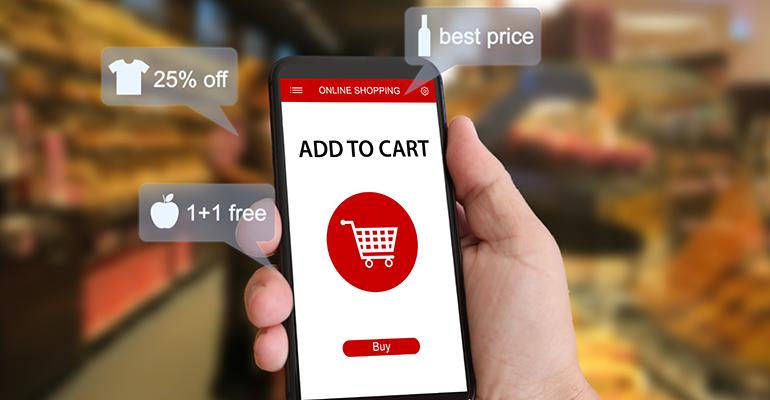News
Spoon Guru’s AI software encourages healthy food choices in the supermarket
9 Feb 2023
Spoon Guru’s data analysis, powered by artificial intelligence (AI), helps supermarkets streamline purchases and encourage healthier eating habits, with Tesco, Albert Heijn, and Woolworths already on board.
The London-based software firm is using AI development to help retailers satisfy consumer appetite for healthier food options – an interest that has surged post-pandemic.

“We’re proud to have helped some retailers cater to this demand,” said Shruti Chawla, vice president of marketing at Spoon Guru.
“By combining product data with our AI’s analysis of shopper purchases, searches and behaviour, retailers gain insight into emerging dietary trends and uncover hidden gaps in their category coverage.
“We are working with retailers and their own brand teams to help them formulate products that meet their customers’ needs.”
Those retailers include the US’ Schnuck Markets, which in 2021 used Spoon Guru’s tech to process thousands of data points to identify and signpost a range of ‘healthier’ products in-store and online.
Chawla said that its Good For You program launched in Jan 2022 achieved 20% of the annual acquisition target within two weeks of launch.
Behavioural science findings used to maintain healthy habits
“By identifying and signposting everyday products that fit into the definition of ‘Good For You’, they were able to show customers that healthy did not necessarily mean more expensive,” she said.
“Not only can they now meet customers where they are on their health journey, but they also use elements based on behavioural science so these healthy habits can be maintained.“
Larger retailers also making moves in this space include Woolworths Australia and the recent launch of its Healthier Options app.
The switch to online grocery shopping and a cleaner, healthier diet are trends that predate the COVID pandemic with growth figures suggesting an upward trajectory, with or without a pandemic.
Research conducted by IGD back in 2019, predicted Europe’s online grocery market would grow by 66% between then and 2023, adding $21 bn (€18.65 bn) in value.
 © iStock/peakSTOCK
© iStock/peakSTOCK
Further predictions, this time for Asia-Pacific indicated an online grocery market growth of 196% by 2023, adding $198bn (€181bn). For North America, a growth of 152% was predicted, adding $38bn (€35bn).
“If anything, the pandemic has accelerated the trend in demand for healthier products,” said Chawla. “It’s a wakeup call for established brands and major retailers to improve their data and technology, both in terms of front-end customer experience and back-end technology.
“They need to have capabilities to optimise search and discovery functionality by cleaning up product data and looking beyond limited front-of-pack labelling to identify comprehensive dietary tags.
“Combining basket data can generate quality insights to predict consumer trends and inform ranging decisions. This can also form the foundation for more comprehensive, personalised health programs.”
Consumer loyalty and the influence of cost
Perhaps the biggest factor here that influences consumer food choice is cost, an ever present constant in all transactions, made even more timely by the unprecedented rise in living costs.
In today's economic climate, loyalty often moves towards cheaper rather than healthier, said Chawla.
Indeed, this is where retailers have moved swifty, introducing value ranges or extended their own label offering in efforts to attract squeezed shoppers buying products at cheaper price points.
Personalisation in the grocery aisle
That being said, there may be other ways loyalty can be cultivated. Chawla highlighted a recent study by Gartner that showed when personalisation was used at the right touch points, it boosted engagement and increased revenue by up to 28% and sales conversion by up to 71%.
“Retailers need to be able to identify their customer health goals and personalise their experience to help them achieve that,” said Chawla. “That’s what Spoon Guru solutions like Health+ does.”
 © iStock/andresr
© iStock/andresr
The issue of personalisation, individual diets and the ability to select foods based on specific health requirements is something that the retail industry are preparing for.
Spoon Guru’s solution enables personalised nutrition at scale with its understanding of food allowing the company to help retailers meet customers' unique needs.
“Every person and household's health needs are unique and while personalisation has been big in marketing - it really hasn't caught up in nutrition yet,” Chawla said.
“We can help retailers place their health strategy at the heart of every customer’s shopping journey with goal setting, personalisation and behavioural science driving the mechanics of how people change the way they eat in a positive way.
“We are already allowing shoppers to discover relevant products based on certain key ingredients and our product roadmap certainly includes more intelligent computation of other factors such as microbiome and sustainability.”
